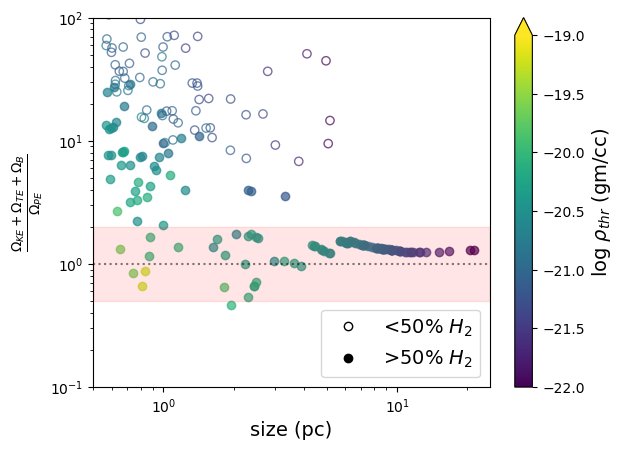Gravo turbulence or global hierarchical collapse?
Shashwata Ganguly
What mechanism drives a molecular cloud to collapse, form dense structures, and eventually even stars? How do we make star formation as inefficient as we actually observe it, with 99% of the gas never forming stars at all? There are two principal scenarios investigating this question.
The gravo-turbulence scenario proposes that molecular clouds are not globally collapsing at all, but are held up by turbulent pressure. Local turbulent compressions cause overdensities. In turn these overdensities can become dense enough to collapse under gravity, and go on and form stars.
In contrast, the global hierarchical collapse scenario proposes that molecular clouds are undergoing gravitational collapse across every scale in the molecular cloud. This collapse proceeds anisotropically and hierarchically, and the cloud is dispersed by stellar feedback from massive stars before all of its mass can be converted into stars.
One way we can potentially distinguish between these scenarios is by carefully examining realistic simulations of molecular cloud formation. An example of such a simulated molecular cloud can be seen in Figure 1. This cloud is one of many that were formed self sufficiently in the SILCC-Zoom simulation of a stratified galactic disk (Seifried et al. 2017).
We identify structures within such clouds by applying a dendrogram algorithm on the three dimensional density distribution. This gives us a list of density structures, hierarchically arranged in a tree structure. By carefully analyzing the energetics of different structures within a cloud, we can comment on the dominant energy for molecular clouds at different length scales, and at different stages of molecular cloud evolution.
In Figure 2, one can see the ratio of kinetic, thermal, and magnetic energy to potential energy against the size of different structures. The kinetic energy is by far the dominant term of the three terms in the numerator. This shows that for the particular cloud shown in Figure 1, self gravity cannot prevail over the turbulent energy except in a few of the densest structures.

